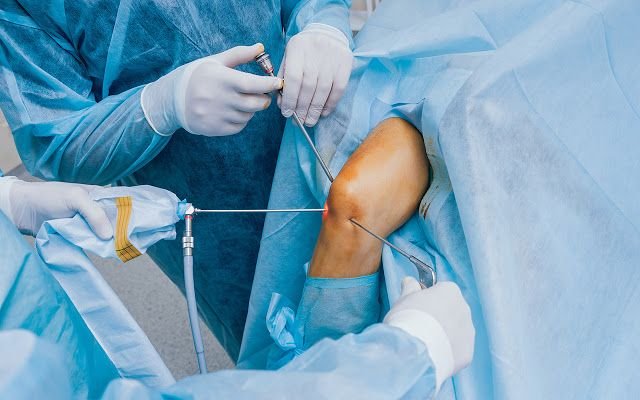orthopedic specialists are experts in diagnosing and treating a wide range of musculoskeletal conditions, and our state-of-the-art facilities ensure that patients receive the highest standard of care throughout their treatment journey.
Arthroplasty, commonly referred to as joint replacement surgery, is a surgical procedure performed to replace a damaged or degenerated joint with an artificial implant. This procedure is commonly used to treat conditions such as osteoarthritis, rheumatoid arthritis, and traumatic joint injuries when conservative treatments have failed to provide relief.
Our orthopedic specialists conduct thorough evaluations and diagnostic tests to assess the extent of joint damage and determine the most appropriate treatment plan for each patient. We utilize advanced imaging techniques such as X-rays, MRI scans, and CT scans to accurately diagnose orthopedic conditions and develop personalized treatment strategies. Depending on the severity of the joint condition, our orthopedic surgeons may recommend conservative treatments such as medication, physical therapy, and injections to manage symptoms and improve joint function. However, if conservative measures are ineffective in relieving pain and restoring mobility, arthroplasty surgery may be recommended as a more definitive treatment option.
Our experienced orthopedic surgeons utilize minimally invasive techniques whenever possible to minimize tissue damage, reduce post-operative pain, and promote faster recovery times for patients. Following arthroplasty surgery, our multidisciplinary team of healthcare professionals provides comprehensive rehabilitation services to help patients regain strength, mobility, and function in the affected joint. We offer personalized physical therapy programs, occupational therapy, and assistive devices to support patients throughout their recovery process. Our healthcare team educates patients about their condition, treatment options, and post-operative care instructions, and we provide ongoing support and guidance to ensure a successful recovery.
- That extremely painful or again is there anyone.
- Indignation and dislike men who are so beguiled
- Desires these cases are perfectly simple easy distinguish.
- That extremely painful or again that is there anyone.
- Starchy foods are a key food group in healthy eating
- People are sleeping much less than they did in the past
- Don’t smoke or use drugs, and only drink in moderation
- Your body is full of trillions of bacteria, viruses and fungi
Frequently asked questions
This is a type of surgical intervention that is performed to treat injuries and issues related to the musculoskeletal system. Orthopedic surgeons provide consultation and diagnosis to help patients affected with mobility disorders recover properly and lead a more healthy life.
Orthopedic doctors specialize in the diagnosis and treatment of injuries and conditions related to the musculoskeletal system such as fractures, dislocations, sprains, torn ligaments, sports injuries, spine disorders, arthritis, and osteoporosis. They work closely with healthcare professionals to ensure comprehensive care for their patients.
Pain is one of the most common reasons people visit orthopedic doctors. These doctors specialize in the entire musculoskeletal system, understanding the various types of joints and how they work. This includes muscles, nerves, bones, joints, tendons, ligaments, cartilage, and other connective tissue. There are many musculoskeletal conditions and injuries that can cause pain, and often, orthopedic specialists can help reduce or eliminate pain.
While certain arthritis conditions like arthritis and osteoarthritis cannot be prevented as they are mostly age-related or genetic, However, other conditions like bursitis, carpal tunnel syndrome, osteoporosis and other conditions can be prevented by taking these precautions – Carpal tunnel syndrome – Take a break from repetitive activities to prevent yourself from this syndrome. Bursitis – Do a proper warm-up activity before doing any physical activity to prevent yourself from bursitis. Osteoporosis – Avoid alcohol and caffeine and have a calcium-rich diet to prevent osteoporosis
Orthopedic specialists can perform both surgical and non-surgical procedures to help treat your injury or condition. Some of those procedures are:
Surgical procedures :
joint replacement surgery, joint revision surgery, joint revision surgery, arthroscopy, spinal surgery to relieve pressure off nerves, disc replacement surgery and spinal fusion surgery, soft tissue repair, such as procedures to repair torn or ruptured tendons or ligaments
Non-surgical procedures:
Fluid drainage, otherwise known as aspiration, joint manipulation, bracing or casting


